This year, in old-fashioned tradition, I set out to make a Christmas wreath using only greenery from the garden. With a frugality that Scrooge would be proud of, this Victorian approach is also thoroughly modern. The wreath is fully compostable and plastic free. The only non-grown element of this wreath is string, some wire for the reusable pine cone decoration and the same ribbon I use every year.
One of the most striking wreaths I ever made used a bought floral foam ring from a florist suppliers since I could use fresh flowers in the display. Using deep red roses or clean white chrysanthemums is very effective but these are best secured and kept fresh in floral foam. I’m trying to reduce my household’s use of single use plastics and realise now that floral foam is made from petrochemicals and is essentially non recyclable plastic.
So here’s my method for making my foraged wreath – I’ve mentioned the materials I used but if you have a garden or access to countryside then go out and take a look at what’s there. Use you imagination as any number of winter plant elements can combine to make an effective display.
How to make a Christmas wreath ring base using garden willow
I used twisted willow to make the base for my Christmas wreath but you can also buy ready made twig-based rings or you could experiment with other supple branches or a wire base. Twisted willow, otherwise known as salix turtuosa is the perfect material from which to form your base ring. Once made it will dry out and firm up and can be used year after year. Twisted Willow is a great plant to have in the garden too. It has fantastic architectural quality in winter. For more information on growing willow in the garden and other ideas on using it in the home click here.
I started by taking two fairly thick but supple branches and bent each one to form a semi-circle, tying the two together with string to make a ring. Don’t worry if it’s not a neat circle as it tends to resolve into a good shape as you add further stems.
I didn’t need any more string after that as I just took further stems and would them round and round the original circle, tucking the ends into and around the ring. Twisted willow stems have lots of smaller whippy stems branching off them and these could be gathered in my hand and would round together to quickly build up the ring. It really is easy of you try.
You can then use this base year after year. The stems will dry out and garden but the structural integrity will remain.
How to create a green base for a Christmas wreath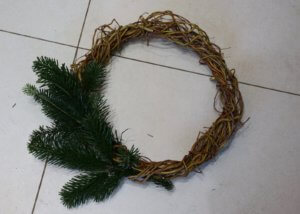
Holly makes a great green base to decorate and I do like a traditional holly wreath. However, it is very prickly to work with and given I had some off-cut branches from my Christmas tree I decided to use these instead. 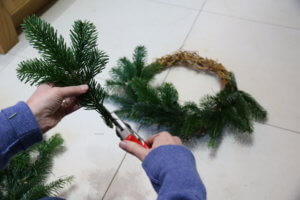
Trim away the needles from the bottom of your stem to make it easier to push through the willow lattice. You will find the dense network of willow will hold the stem firmly in place. The easiest way to build up the wreath is to follow the circle round placing each stem in turn behind the one in front and at a slight angle to the ring.
Decorating the wreath
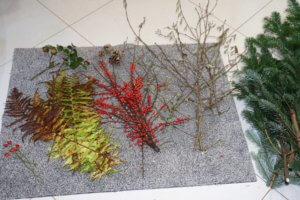
Decorations for wreath foraged from the garden – L-R rose hips, fern fronds, cotoneaster horizontalis berries, hazel catkin twigs, Christmas tree offcuts.
I’m very happy for my wreath to be plastic-free and non glittery. The visual punch is created by russet toned berries and leaves with contrasting forms. I saw on twitter someone had used fern fonds and whilst these looked brown and unappealing as they died back in the damp garden, I hoped they’d look good in the wreath itself when combined with other elements.
I also gathered rose hips, berried twigs of cotoneaster horizontalis and some twigs of hazel which had some lovely plump catkins on them. For more ideas on growing and using hazel click here.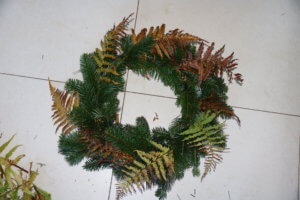
I started with the fern fronds, again following the circle round so that the tips of the fronds protrude slightly wider than than green base to add a feathery-edged feel to the wreath. I then added the berry and catkin twigs, wired pine cones and hips to add colour and contrast.
Here’s another combination – this one using the russet and lime green tones of fading hydrangea heads.
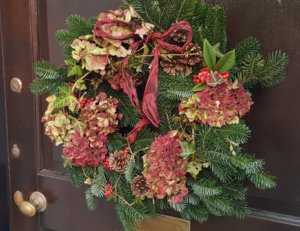
Wishing you all a Happy Christmas and happy foraging.
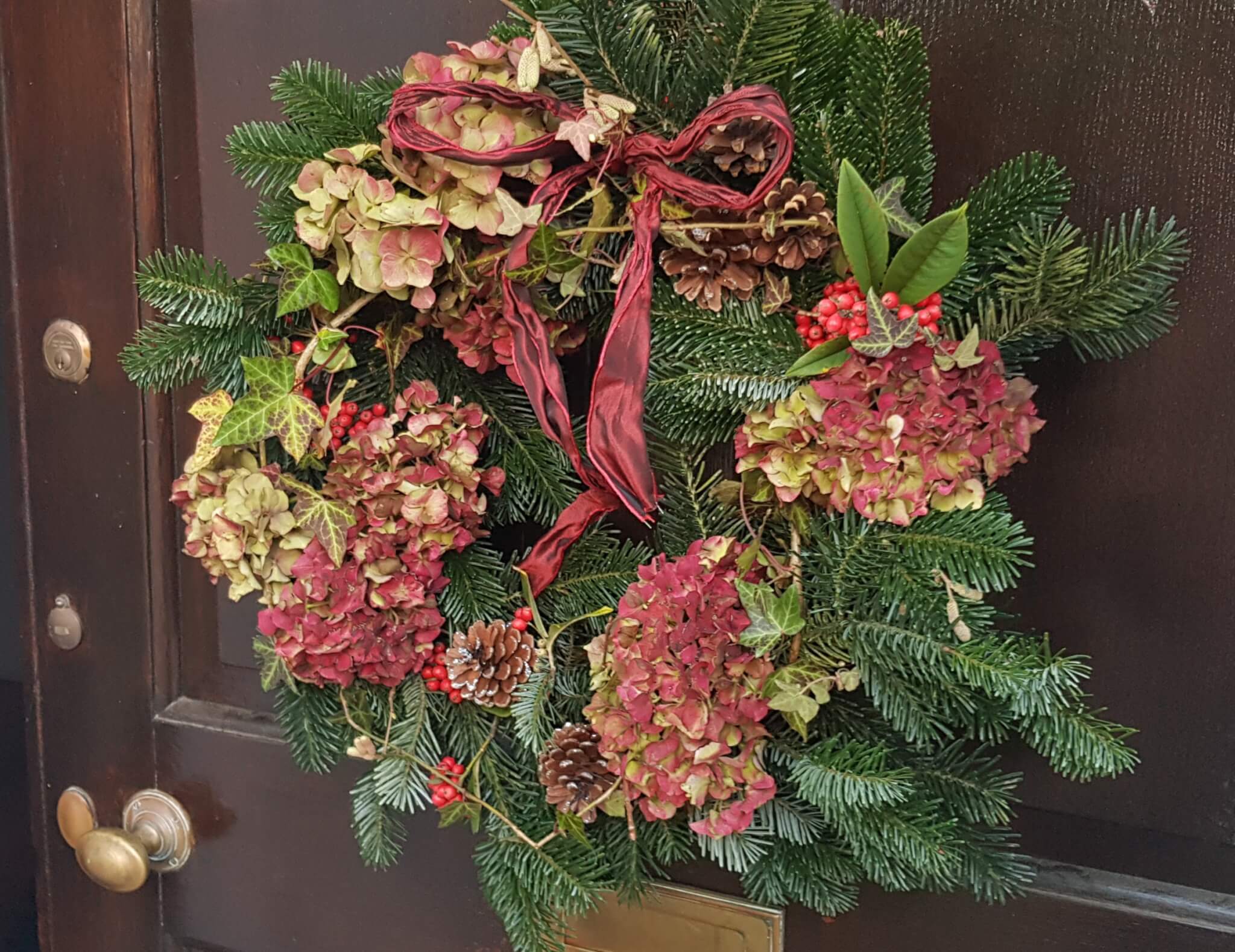
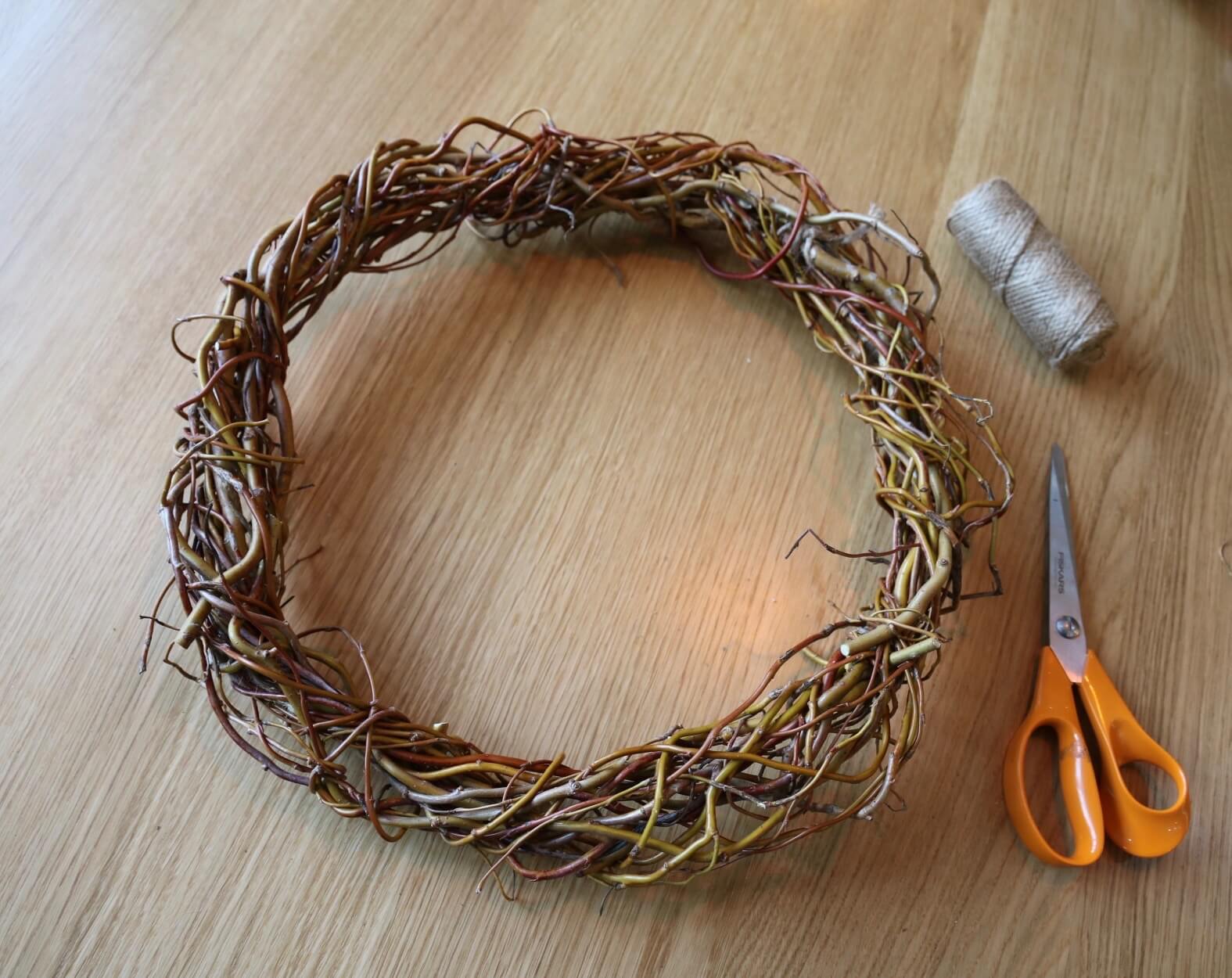
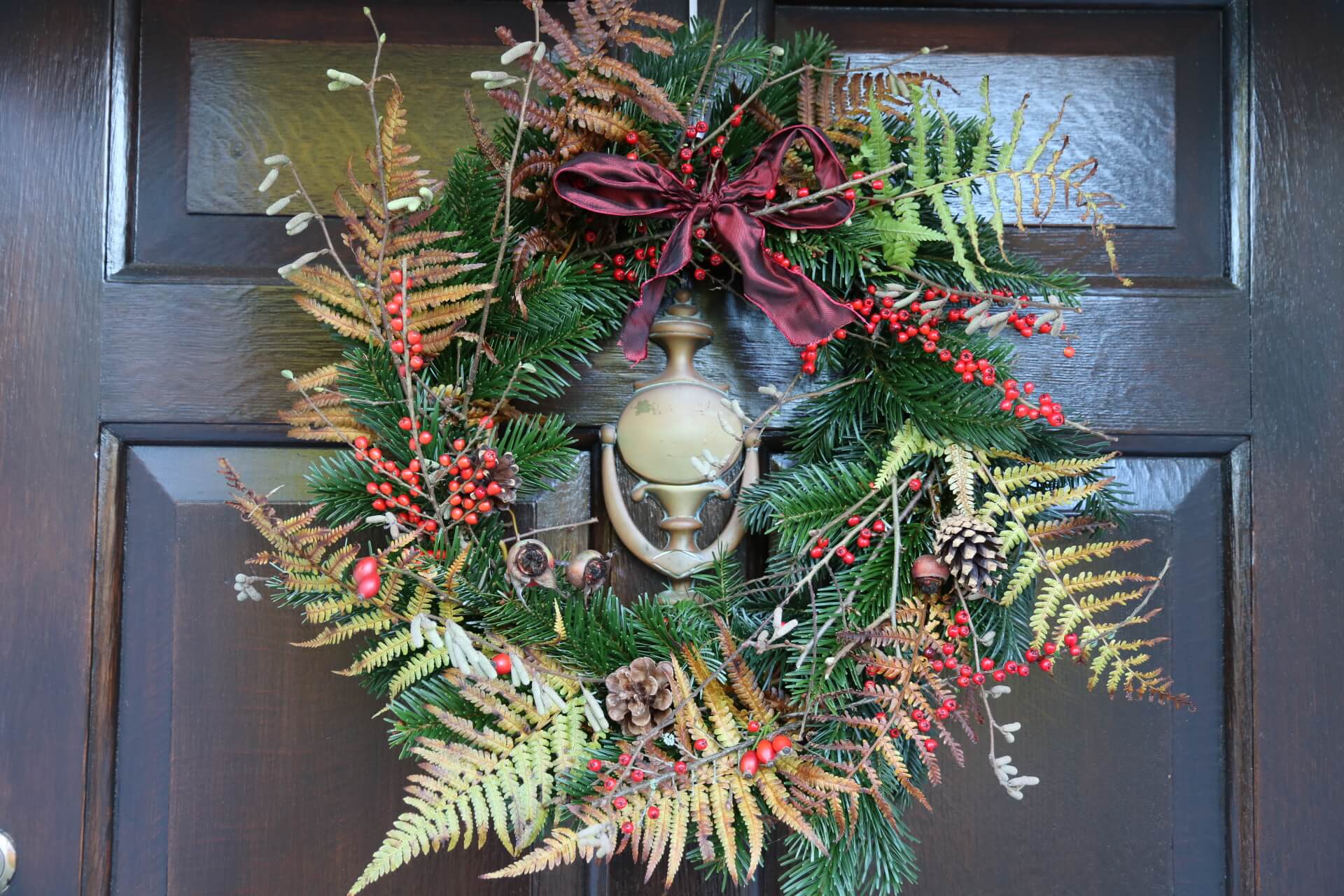
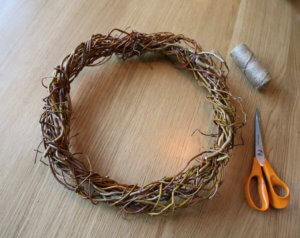
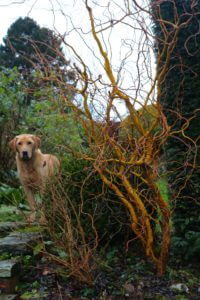
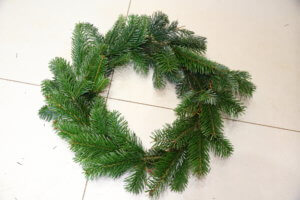
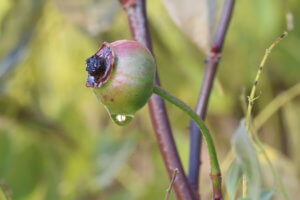
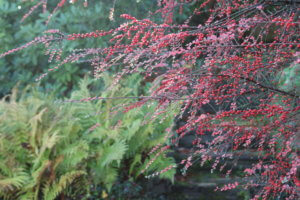
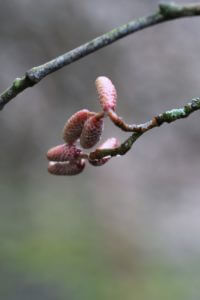
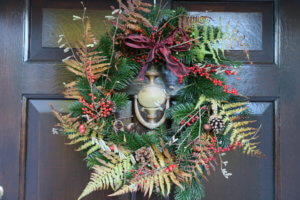
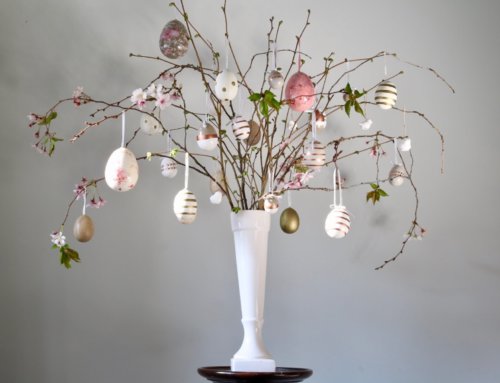
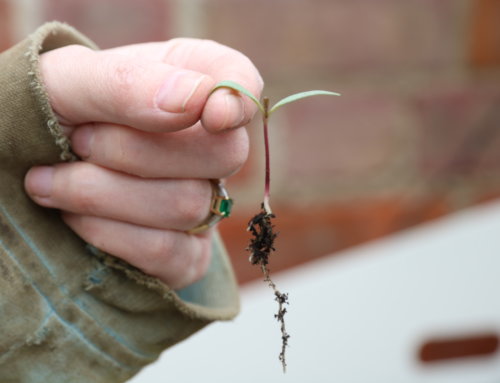
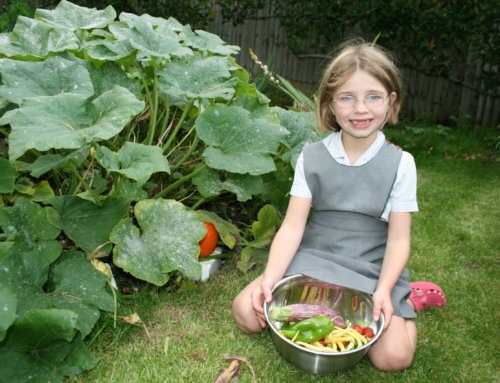
Very informative going to try this with my old Xmas tree and stuff from the local wood thank you
Hi Christine – thanks for the feedback and I hope you enjoy making your wreath.
I’m sure all of the pieces of the wreath will dry out, but is the wreath usable year after year? Or just the base?
Just the base is reusable. Keeping it from year to year really speeds up the wreath-making process. I keep mine in a bag with the hangning ribbon, wires pine cones etc and then I can just go foraging for everything else.